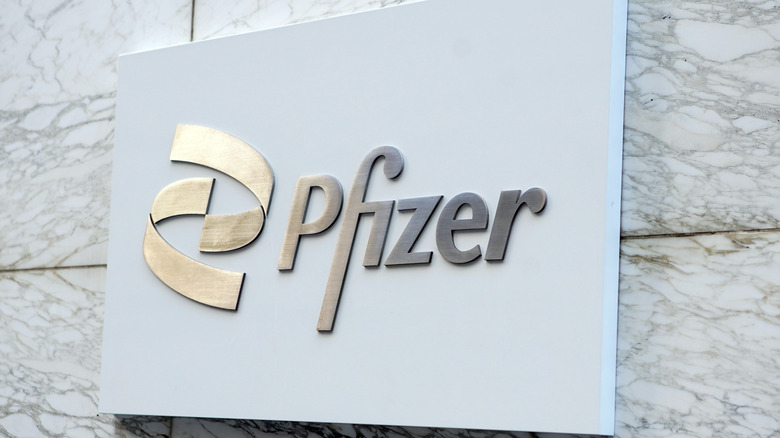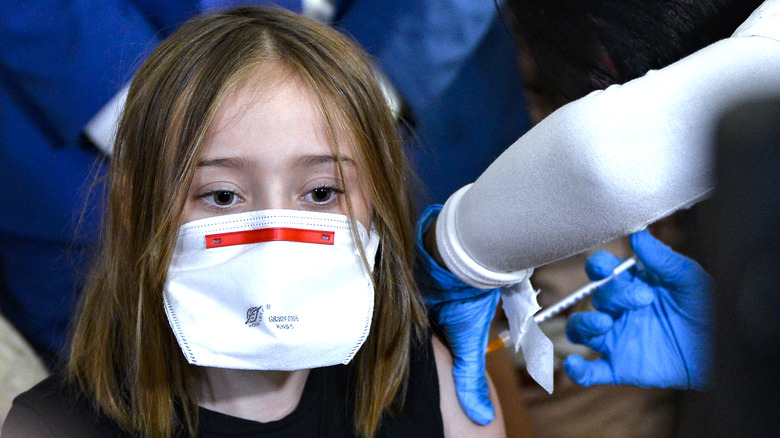Pfizer Shares Bad News About Its COVID-19 Vaccine For Children
Drugmaker Pfizer released some disappointing news on Friday, saying that results of clinical trials of its low-dose COVID-19 vaccine on young children aged 2-5 showed a failure to produce the expected immune response in that age bracket (via CNN). As a result, Kathrin Jansen, Pfizer's head of vaccine research, told investors that the trial would be amended to include a third, 3 microgram dose, which would be given at least two months after the second dose to babies and children between 6 months and less than 5 years old, per NBC Orlando affiliate, WESH 2. Pfizer's dosage for kids aged 5-11 is 10 micrograms, and for those 12 and up, it is 30 micrograms (via CNN).
Jansen cited data on variants which indicates that people vaccinated with three doses of an mRNA COVID-19 vaccine may have better protection than those with two doses. She added that, if third-dose results from upcoming trials in young children are favorable, "We would have a consistent three-dose vaccine approach for all ages," (via WESH 2).
Pfizer's regimen for kids younger than 5
Adding a third dose will extend the trial's timeframe, which means that Pfizer and its partner, BioNTech, will not have data to submit to regulators until the first half of next year, according to NBC.
In spite of what seems to be a favorable short-term safety profile so far, some doctors are questioning the need for a third dose for children, since data shows that a two-dose regimen offers protection against severe disease. That, according to Dr. Paul Offit, a vaccine expert at Children's Hospital of Philadelphia, should be the goal of the vaccine. He told NBC, "The goal is no longer just protection against serious illness but protection against infection. That is not a goal we have for any other vaccine."
The companies are also exploring the effectiveness of booster shots for 5 to 11-year-olds, as well as for teenagers (via WESH 2).


